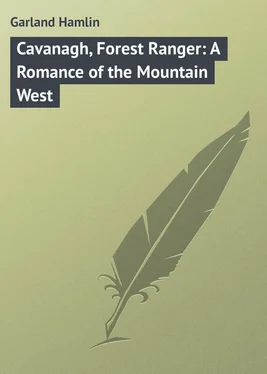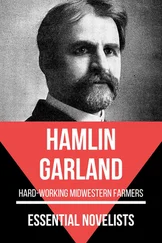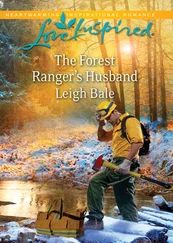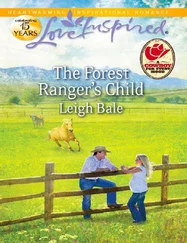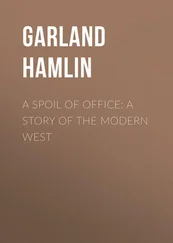Hamlin Garland - Cavanagh, Forest Ranger - A Romance of the Mountain West
Здесь есть возможность читать онлайн «Hamlin Garland - Cavanagh, Forest Ranger - A Romance of the Mountain West» — ознакомительный отрывок электронной книги совершенно бесплатно, а после прочтения отрывка купить полную версию. В некоторых случаях можно слушать аудио, скачать через торрент в формате fb2 и присутствует краткое содержание. Жанр: foreign_prose, foreign_adventure, foreign_language, на английском языке. Описание произведения, (предисловие) а так же отзывы посетителей доступны на портале библиотеки ЛибКат.
- Название:Cavanagh, Forest Ranger: A Romance of the Mountain West
- Автор:
- Жанр:
- Год:неизвестен
- ISBN:нет данных
- Рейтинг книги:3 / 5. Голосов: 1
-
Избранное:Добавить в избранное
- Отзывы:
-
Ваша оценка:
- 60
- 1
- 2
- 3
- 4
- 5
Cavanagh, Forest Ranger: A Romance of the Mountain West: краткое содержание, описание и аннотация
Предлагаем к чтению аннотацию, описание, краткое содержание или предисловие (зависит от того, что написал сам автор книги «Cavanagh, Forest Ranger: A Romance of the Mountain West»). Если вы не нашли необходимую информацию о книге — напишите в комментариях, мы постараемся отыскать её.
Cavanagh, Forest Ranger: A Romance of the Mountain West — читать онлайн ознакомительный отрывок
Ниже представлен текст книги, разбитый по страницам. Система сохранения места последней прочитанной страницы, позволяет с удобством читать онлайн бесплатно книгу «Cavanagh, Forest Ranger: A Romance of the Mountain West», без необходимости каждый раз заново искать на чём Вы остановились. Поставьте закладку, и сможете в любой момент перейти на страницу, на которой закончили чтение.
Интервал:
Закладка:
All this was quite too absorbingly interesting to permit of any study of the landscape, which went by as if dismissed by the chariot wheels of some contemptuous magician. Redfield’s eyes were mostly on the road (in the manner of the careful driver), but when he did look up it was to admire the color and poise of his seat-mate, who made the landscape of small account.
She kept the conversation to the desired point. “Mr. Cavanagh’s work interests me very much. It seems very important; and it must be new, for I never heard of a forest ranger when I was a child.”
“The forester is new – at least, in America,” he answered. “My dear young lady, you are returned just in the most momentous period in the history of the West. The old dominion – the cattle-range – is passing. The supremacy of the cowboy is ended. The cow-boss is raising oats, the cowboy is pitching alfalfa, and swearing horribly as he blisters his hands. Some of the rangers at the moment are men of Western training like Ross, but whose allegiance is now to Uncle Sam. With others that transfer of allegiance is not quite complete, hence the insolence of men like Gregg, who think they can bribe or intimidate these forest guards, and so obtain favors; the newer men are college-bred, real foresters. But you can’t know what it all means till you see Ross, or some other ranger, on his own heath. We’ll make up a little party some day and drop down upon him, and have him show us about. It’s a lonely life, and so the ranger keeps open house. Would you like to go?”
“Oh, yes indeed! I’m eager to get into the mountains. Every night as I see the sun go down over them I wonder what the world is like up there.”
Then he began very delicately to inquire about her Eastern experience. There was not much to tell. In a lovely old town not far from Philadelphia, where her aunt lived, she had spent ten years of happy exile. “I was horribly lonely and homesick at first,” she said. “Mother wrote only short letters, and my father never wrote at all. I didn’t know he was dead then. He was always good to me. He wasn’t a bad man, was he?”
“No,” responded Redfield, without hesitation. “He was very like the rest of us – only a little more reckless and a little more partisan, that’s all. He was a dashing horseman and a dead-shot, and so, naturally, a leader of these daredevils. He was popular with both sides of the controversy up to the very moment when he went South to lead the invaders against the rustlers.”
“What was it all about? I never understood it. What were they fighting about?”
“In a sense, it was all very simple. You see, Uncle Sam, in his careless, do-nothing way, has always left his range to whomever got there first, and that was the cattle-man. At first there was grass enough for us all, but as we built sheds and corrals about watering-places we came to claim rights on the range. We usually secured by fraud homesteads in the sections containing water, and so, gun in hand, ‘stood off’ the man who came after. Gradually, after much shooting and lawing, we parcelled out the range and settled down covering practically the whole State. Our adjustments were not perfect, but our system was working smoothly for us who controlled the range. We had convinced ourselves, and pretty nearly everybody else, that the State was only fit for cattle-grazing, and that we were the most competent grazers; furthermore, we were in possession, and no man could come in without our consent.
“However, a very curious law of our own making was our undoing. Of course the ‘nester’ or ‘punkin roller,’ as we contemptuously called the small farmer, began sifting in here and there in spite of our guns, but he was only a mosquito bite in comparison with the trouble which our cow-punchers stirred up. Perhaps you remember enough about the business to know that an unbranded yearling calf without its mother is called a maverick?”
“Yes, I remember that. It belongs to the man who finds him, and brands him.”
“Precisely. Now that law worked very nicely so long as the poor cowboy was willing to catch and brand him for his employer, but it proved a ‘joker’ when he woke up and said to his fellows: ‘Why brand these mavericks at five dollars per head for this or that outfit when the law says it belongs to the man who finds him?’”
Lee Virginia looked up brightly. “That seems right to me!”
“Ah yes; but wait. We cattle-men had large herds, and the probabilities were that the calf belonged to some one of us; whereas, the cowboy, having no herd at all, knew the maverick belonged to some one’s herd. True, the law said it was his, but the law did not mean to reward the freebooter; yet that is exactly what it did. At first only a few outlaws took advantage of it; but hard years came on, the cattle business became less and less profitable, we were forced to lay off our men, and so at last the range swarmed with idle cow-punchers; then came the breakdown in our scheme! The cowboys took to ‘mavericking’ on their own account. Some of them had the grace to go into partnership with some farmer, and so claim a small bunch of cows, but others suddenly and miraculously acquired herds of their own. From keeping within the law, they passed to violent methods. They slit the tongues of calves for the purpose of separating them from their mothers. Finding he could not suck, bossy would at last wander away from his dam, and so become a ‘maverick.’ In short, anarchy reigned on the range.”
“But surely my father had nothing to do with this?”
“No; your father, up to this time, had been on good terms with everybody. He had a small herd of cattle down the river, which he owned in common with a man named Hart.”
“I remember him.”
“He was well thought of by all the big outfits; and when the situation became intolerable, and we got together to weed out ‘the rustlers,’ as these cattle-thieves were called, your father was approached and converted to a belief in drastic measures. He had suffered less than the rest of us because of his small herd and the fact that he was very popular among the cowboys. So far as I was concerned, the use of violent methods revolted me. My training in the East had made me a respecter of the law. ‘Change the law,’ I said. ‘The law is all right,’ they replied; ‘the trouble is with these rustlers. We’ll hang a few of ’em, and that will break up the business.’”
Parts of this story came back to the girl’s mind, producing momentary flashes of perfect recollection. She heard again the voices of excited men arguing over and over the question of “mavericking,” and she saw her father as he rode up to the house that last day before he went South.
Redfield went on. “The whole plan as developed was silly, and I wonder still that Ed Wetherford, who knew ‘the nester’ and the cowboy so well, should have lent his aid to it. The cattle-men – some from Cheyenne, some from Denver, and a few from New York and Chicago – agreed to finance a sort of Vigilante Corps composed of men from the outside, on the understanding that this policing body should be commanded by one of their own number. Your father was chosen second in command, and was to guide the party; for he knew almost every one of the rustlers, and could ride directly to their doors.”
“I wish he hadn’t done that,” murmured the girl.
“I must be frank with you, Virginia. I can’t excuse that in him. It was a kind of treachery. He must have been warped by his associates. They convinced him by some means that it was his duty, and one fine day the Fork was startled by a messenger, who rode in to say that the cattle-barons were coming with a hundred Texas bad men ‘to clean out the town,’ and to put their own men into office. This last was silly rot to me, but the people believed it.”
Читать дальшеИнтервал:
Закладка:
Похожие книги на «Cavanagh, Forest Ranger: A Romance of the Mountain West»
Представляем Вашему вниманию похожие книги на «Cavanagh, Forest Ranger: A Romance of the Mountain West» списком для выбора. Мы отобрали схожую по названию и смыслу литературу в надежде предоставить читателям больше вариантов отыскать новые, интересные, ещё непрочитанные произведения.
Обсуждение, отзывы о книге «Cavanagh, Forest Ranger: A Romance of the Mountain West» и просто собственные мнения читателей. Оставьте ваши комментарии, напишите, что Вы думаете о произведении, его смысле или главных героях. Укажите что конкретно понравилось, а что нет, и почему Вы так считаете.
